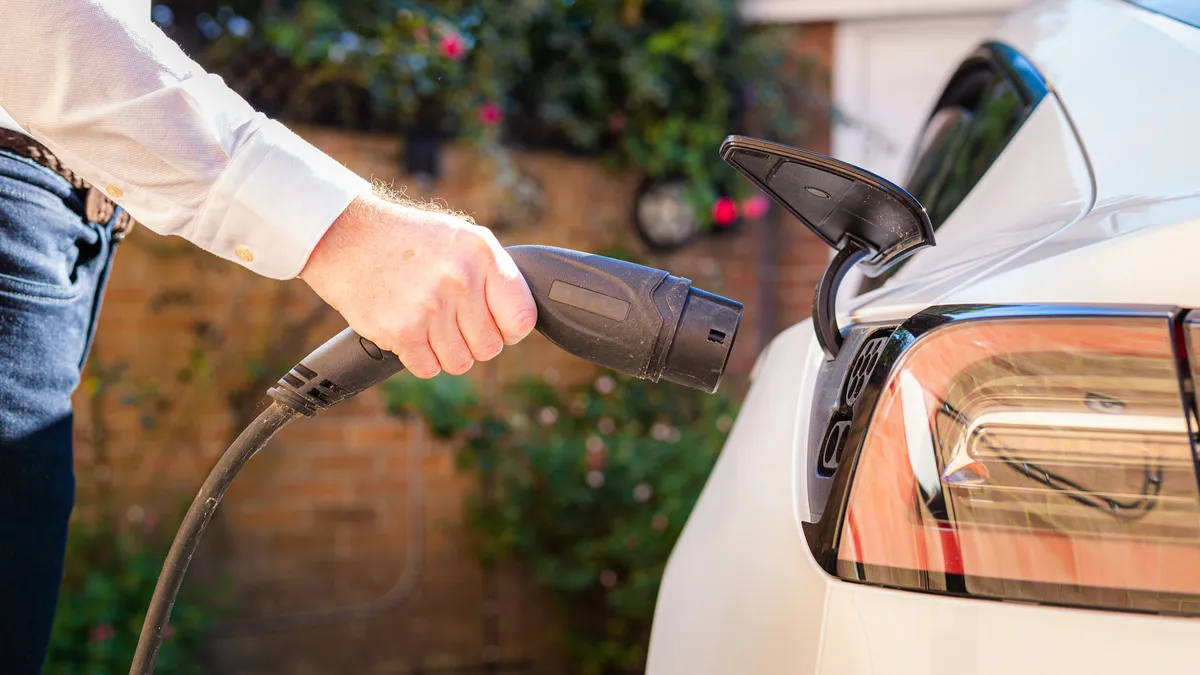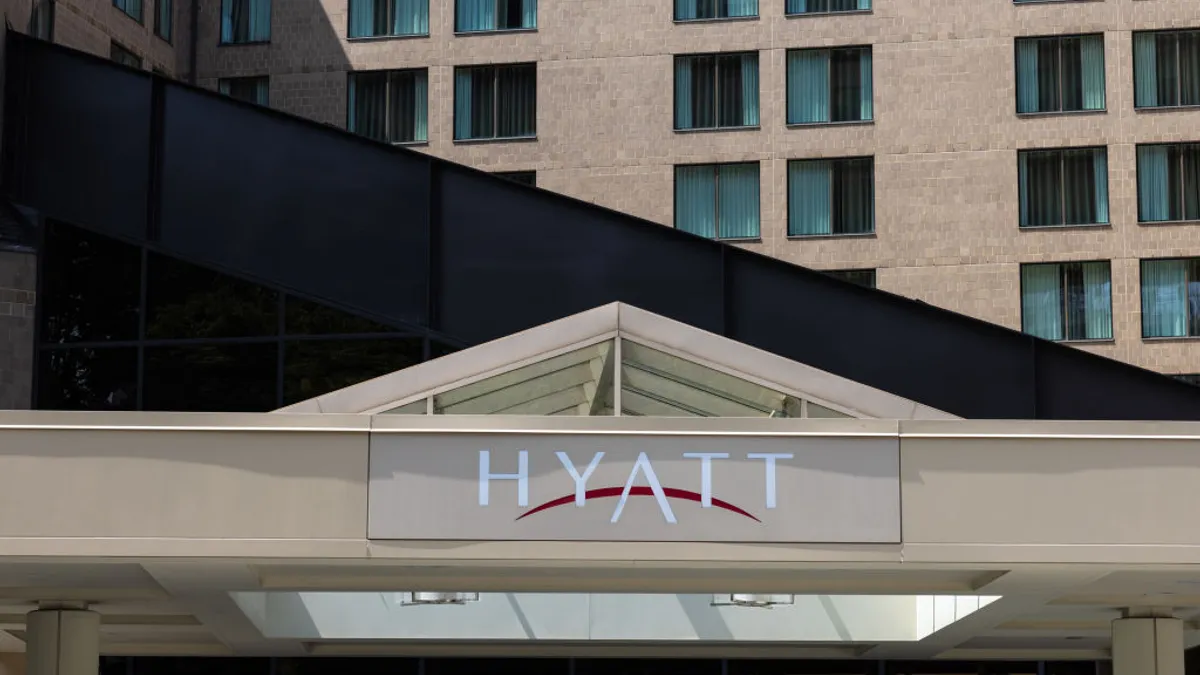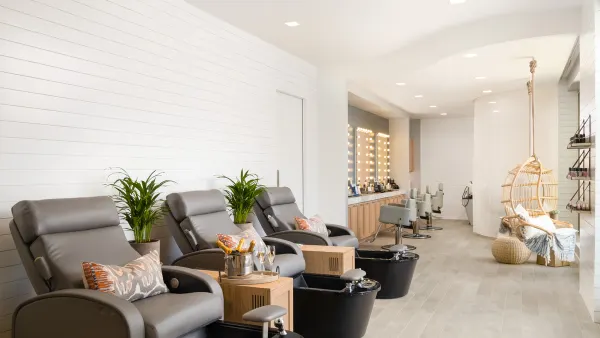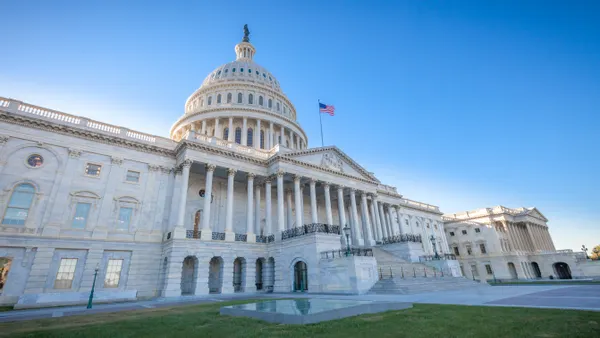Dive Brief:
- Electric vehicle charging provider LNG Electric, in partnership with design firm MD7, will deploy Level 2 and Level 3, also known as Direct Current Fast Charging, EV charging stations at more than 13,000 hotels and 40 multifamily communities across the country, the company announced Tuesday.
- Starting this month, the first batch of Level 2 chargers will be deployed to Marriott and Hilton brand hotels in Ohio, Florida and Illinois. Each hotel will get two to six chargers depending on the property size, LNG Electric CEO Taylor Weaver told Hotel Dive.
- With the rollout, LNG Electric aims to make EV chargers more widely available and decrease traveler stress by deploying thousands of chargers to a stop already on their itineraries: hotels.
Dive Insight:
LNG Electric’s deployment is intended to mitigate what Weaver calls “range anxiety,” the stress felt by EV travelers who are unsure of where, or if, they will be able to stop to recharge their cars.
This anxiety was reflected in a 2022 McKinsey study that found that while EV sales in the U.S. have climbed by more than 40% each year on average since 2016, nearly half of consumers say battery or charging issues are their top concerns about buying EVs.
According to Weaver, this concern comes from a lack of available EV charging stations. In September, NPR reported that there are about 46,000 charging stations in the U.S., compared to around 150,000 gas stations.
This discrepancy is amplified by the fact that EVs, on average, can travel a shorter distance per station stop. An EV can usually travel less than 200 miles on a full charge, while the average gas-powered car is able to travel between 380 and 460 miles per a full tank, Weaver said.
While LNG Electric’s first hotel deployments are scheduled for Marriott and Hilton properties, Weaver said any hotel built after 1970 could feasibly accommodate the Level 2 EV charging stations, which can be installed in four to six weeks. Once installed, the Level 2 charger can fully charge a car in four to eight hours.
The Level 3 DCFC charger has a significantly shorter charge time of from 30 to 45 minutes, but it has a more costly and complex installation process, taking three to four months. However, LNG Electric is in talks with several potential partners to deploy the DCFC to reduce charge times nationwide.
Regardless of model, Weaver said, EV charging stations can significantly benefit a hotel owner, noting they can increase guest satisfaction and potentially revenue as they draw travelers who may not have otherwise stayed but do because they need to charge their car.
Another company bringing EV charging to hotels is EOS Linx. Last year, the company struck a deal with Choice Hotels to install EOS charging stations at the brand’s properties in Atlanta and Chattanooga and Nashville, Tennessee.
“Choice Hotels properties are often located close to highways, making them ideal locations for EV chargers, and this collaboration brings us one step closer to creating a robust EV charging infrastructure that will help support our nation's EV growth targets,” Blake Snider, president at EOS Linx, said in a company announcement.
Additionally, Georgia-based EV charging network Stay-N-Charge has collaborated with roughly 40 U.S. hotels to install chargers.










